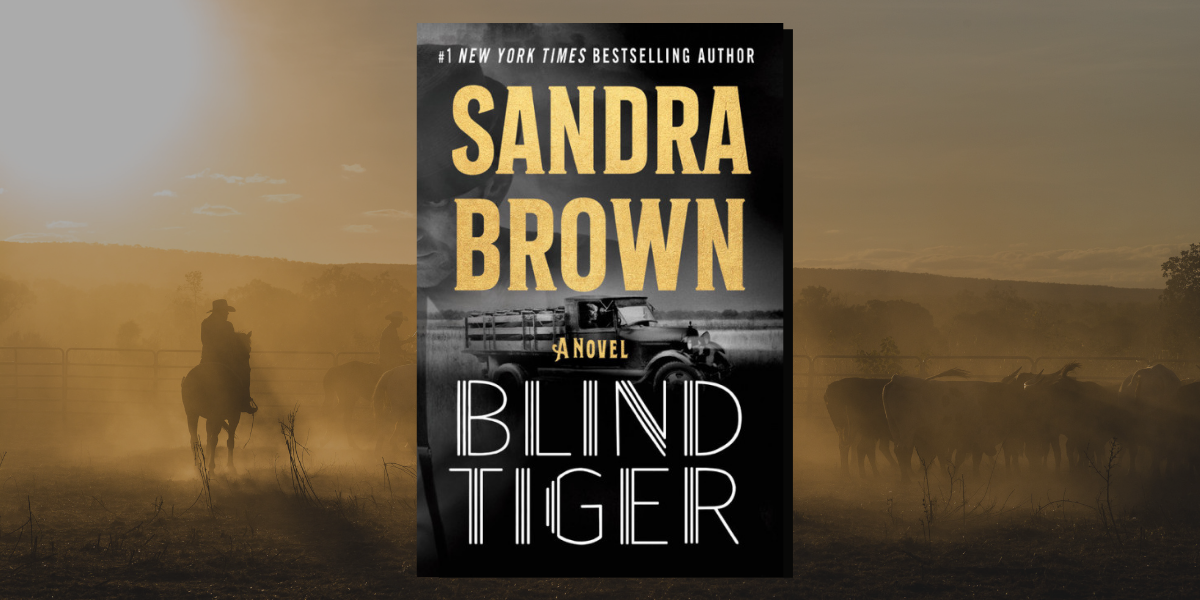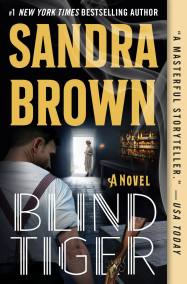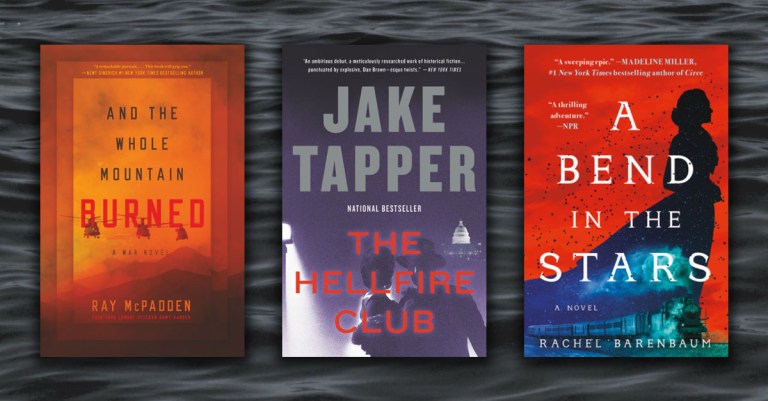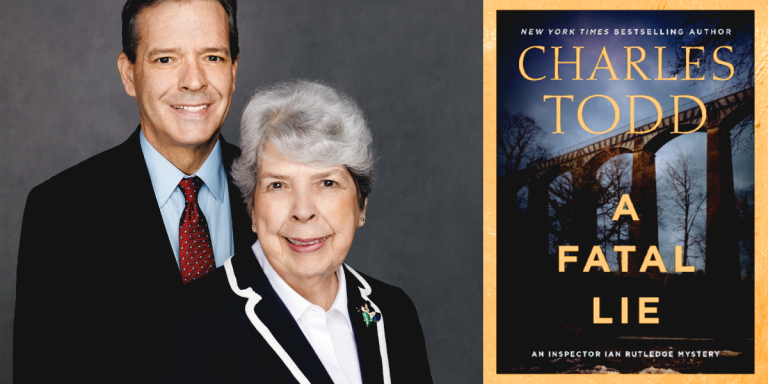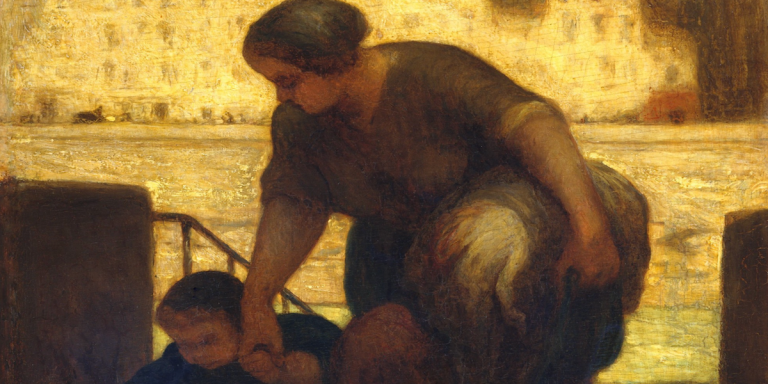Read the Excerpt: Blind Tiger by Sandra Brown
May 1920
Thatcher had worn out his welcome.
He knew it, although he tried not to act like he did. He lay on his
back, using his duffel bag as a pillow, fingers linked over his stomach, fedora covering his face.
He pretended to be asleep. He was far from it. He was acutely aware of everything going on inside the boxcar, the atmosphere of which had turned ripe to the stinking point with hostility.
Beneath him, the wheels of the train rhythmically clickety-clacked over the rails, but their noisy cadence didn’t drown out the snores of the three men sharing the freight car with him. Thatcher didn’t trust their snorts and snuffles. They were too irregular and loud. Like him, they were playing possum, waiting for an opportunity to spring.
The door to the car had been left partially open to provide them fresh air. The gap was no wider than a few feet. Three, four at best. Once he made his move, he couldn’t hesitate. He would get only one chance, so, within a second or two of moving, he’d have to make a clean jump through that slim gap.
If he didn’t make it out, a fight was inevitable. Three against one. Bad odds in any contest. Until fate had put them together on this train, they’d been strangers to him and to one another. But last night, somewhere between coastal Louisiana and wherever they were now, the other three had become unified against him.
The last thing he wanted was a damned fight. He’d fought in one. A bloody one. He’d been on the winning side of it, but victory hadn’t felt as glorious as people had let on. To his mind, the loss of so many men and women wasn’t a fit reason to hold parades.
No, he wouldn’t welcome a fight, but if he had to defend himself, he would, and he wouldn’t fight fair. He hadn’t cheated death in France to die in this railroad car that reeked of its cargo of yellow onions and unwashed men.
One advantage the other three had over him was that they weren’t new to riding freights. He was the amateur. But he’d listened to their idle conversation, had paid attention, had sifted the facts out of the bullshit.
They’d jawed about the stationmasters who were charitable and looked the other way when they spotted a hobo, and others who were die-hard company men, “by-the-rules sons o’ bitches” who were well known up and down the line for showing no mercy to men they caught hitching a ride.
Thatcher’s plan had been to wait until the train began to slow on the outskirts of the next town and to get off before it reached the depot, in case the stationmaster there happened to be one of the less tenderhearted.
But these men, who were seasoned in the art, were probably expecting him to do just that. No doubt their plan was to jump him before he could jump from the train.
They were on a track that cut across the broad breast of Texas where towns were few and far between. But within the last few minutes, Thatcher had decided that no matter how desolate the landscape was where he landed, it would be safer than staying in this boxcar and at the mercy of men who didn’t have anything left to lose.
Jumping from a moving train couldn’t be much worse than being thrown from a horse, could it? He’d been pitched off too many times to count. But he’d never been thrown when it was full dark, when he didn’t know his exact location or where his next drink of water would come from. How long till daylight? He didn’t dare check his wristwatch. The army invention was still a novelty to folks who hadn’t been issued one during the war. He didn’t want to draw attention by consulting the time, which would be a giveaway that he was awake and planning a departure. As unobtrusively as possible, he used his index finger to raise his hat just far enough to gauge the degree of darkness beyond the opening.
Since the last time he’d sneaked a look, the rectangular gap had turned from solid black to dull gray.
Moving only his gaze, he looked toward the men who were a short distance away, lying at various angles to each other. Two were snoring loudly, feigning sleep. One, Thatcher could tell, was watching him through slitted eyelids. Thatcher lowered his finger from the underside of the brim. His hat resettled over his face.
He forced himself to breathe evenly while he counted to sixty. Then in one motion, he lurched to his feet as he popped his hat onto his head and grabbed his duffel bag by the strap. He made it to the opening and hurled his bag out.
Just as he was about to spring, one of the men grabbed his sleeve from behind.
Shit!
Thatcher came around and swung his fist toward the guy’s head, but he saw it coming, ducked, and held on to Thatcher’s sleeve like a bulldog. Out the corner of his eye, he saw another approaching in a crouch, making wide swipes with a knife.
The man holding on to him threw a punch that caught Thatcher in the ribs. He retaliated by chopping the guy across the throat with the side of his hand. His attacker let go of his sleeve and staggered backward, holding his throat with both hands and wheezing.
Thatcher spun around to the one with the knife. He had less than a second to throw up his hand to protect his face from being slashed. The sharp blade sliced across his palm. Thatcher yelped.
The hobo grinned and charged. With his good hand, Thatcher caught hold of the vertical iron handle on the door and kicked the knifer in the balls. Dropping the knife, he screamed in agony, grabbed himself, dropped to his knees, then fell onto his side. Thatcher picked up the knife. The third in the group was poised to attack. Thatcher, winded, his cut hand hurting like bloody hell, said, “Call it quits why don’t you?” But the tramp didn’t listen. He came up on his toes, preparing to lunge.
Thatcher threw the knife end over end. The point pierced through the man’s right shoe, nailing his foot to the floor of the boxcar.
Thatcher turned and made a blind leap through the opening. As he went airborne, howled obscenities trailed him into the predawn light as the train rumbled on.
He landed on his feet, but his knees buckled at the jarring impact. Unable to break his fall, he tumbled down the incline, cussing the pounding he was taking from boulders and stumps.
On one of his revolutions, he recognized the shape of a large agave, dead ahead and coming up fast. As he slid downhill toward it, he dug in his heels. They kicked up loose rocks and grit that struck him in the face, but he was able to stop within inches of being impaled by one of the plant’s barbed spines.
As the dust settled around him, he took mental stock of himself and determined that none of his limbs hurt bad enough to have been broken. His breathing was hard and fast, but it didn’t hurt to suck in air, so no busted or sprained ribs despite the blow he’d taken on one side. He wasn’t dizzy, didn’t feel like puking.
Accepting that he was basically all right except for his throbbing palm, adrenaline seemed to leak from his pores like sweat. He stayed as he was, lying there on his back, taking in his expansive and unobstructed view of the sky. It was turning paler by the second, causing the panoply of stars to dim, and he thought what a hell of a thing it was that he was still alive and could admire that sky.
Then, as only one who had slept standing up in a trench while rats scuttled across his blood-soaked boots could do, he dropped into a deep sleep.
He woke up to an early sun, but kept his eyes closed against its brightness, basking in the clean warmth of it on his face. He savored the stillness of the ground beneath him. He’d been unsteadily rocking for two days in that mother-lovin’ boxcar. It had been almost as bad as the merchant marine freighter requisitioned and re-outfitted to ship troops home from Europe. If he never saw the Atlantic again, or a wave stronger than a ripple in a stock pond, it would be fine with him.
After several minutes, he sat up. His vision was still clear, and he wasn’t dizzy, although he had taken a clout to the head during his downhill plunge. A goose egg had formed on his right temple at his hairline.
He took a handkerchief from his pocket and used it to wipe the blood away from the cut across his palm. It wasn’t all that deep, but it made his hand ache. He wrapped the handkerchief around it.
By the position of the sun, he figured out the directions. The landscape was dominated by rugged limestone outcroppings, some bare, some with live oak trees or cedar breaks seeming to grow straight out of the rock. Scrub brush, like that wicked-looking agave, dotted the shallow topsoil.
He figured he was somewhere in the hill country. Still hundreds of miles from home.
He stood up and dusted himself off as best he could, then climbed the incline back to the tracks. The wind was southerly and warm, but strong. It had blown his hat off when he’d made the jump, but miraculously it was still there, lying in the railbed.
He clamped it onto his head and pulled the brim down low over his eyes, then started walking along the tracks in the direction from which the train had come, until he reunited with his duffel bag.
Shouldering it, he reversed his direction and continued in the north-westerly direction the train had been traveling. He saw no indication that a settlement of any kind was anywhere close. He didn’t even see a road. The only living things he spotted were a small herd of cattle on a distant hill, and three buzzards, circling their breakfast. Or what soon would be their breakfast.
His stomach was gnawing at its own emptiness, but the only food left in his duffel were a few saltine crackers and the last of a hunk of cheddar. Eating them would make him thirsty, so he decided to hold off until he found water.
He hiked along the tracks for an hour before he reached a crossing. A gravel road ran north and south perpendicular to the tracks, extending for seeming miles in both directions without a turnoff. He took the northern route, hoping that he wouldn’t have to hoof it for too long before someone came along who would give him a lift.
The road was easier to walk on than the railbed, but the sky was cloudless, and the sun grew hotter than what you’d expect in mid-May. He shucked off his jacket and draped it over the duffel bag, unbuttoned the cuffs of his shirt and rolled them up.
Sighting a thin trail of smoke rising from behind one of the hills, he was tempted to go in search of the source. A ranch house, or even a campsite, could provide him with a drink of water.
But the smoke was swiftly dispersed by the high wind, so he couldn’t be certain how far away it was, and he was reluctant to go exploring off the beaten path. He was no stranger to living without a roof over his head, but he wasn’t equipped to do so now.
He estimated he’d walked three or four miles before he spotted a structure on the crest of a rise. At first it was only a dark dot, but the closer he got, it began to take shape. He smelled wood smoke, even though he didn’t see any coming from the flue sticking out of the roof at an angle. A Model T was parked in front, along with a truck that looked like a junkyard on wheels.
The place didn’t look hospitable, but somebody was at home, and he was damned thirsty.
He started up the dirt lane. As he got closer to the house, he saw that it wasn’t a house at all, but a line shack, as ill-kempt a one as he’d ever seen. It must belong to a slipshod outfit that instilled no sense of pride in the cowboys who worked for it.
However, it was no cowboy in the yard, but a young woman who was wrestling with a wet bedsheet. She was trying to get it onto a makeshift clothesline strung between the back corner of the shack and the outhouse. The strong wind was hampering her effort, but she was putting up a fight.
He said, “The sheet is winning.”
Order The Book
Thatcher Hutton, a war-weary soldier on the way back to his cowboy life, jumps from a moving freight train to avoid trouble . . . and lands in more than he bargained for. On the day he arrives in Foley, Texas, a local woman goes missing. Thatcher, the only stranger in town, is suspected of her abduction, and worse. Standing between him and exoneration are a corrupt mayor, a crooked sheriff, a notorious cathouse madam, a sly bootlegger, feuding moonshiners . . . and a young widow whose soft features conceal an iron will.
What was supposed to be a fresh start for Laurel Plummer turns to tragedy. Left destitute but determined to dictate her own future, Laurel plunges into the lucrative regional industry, much to the dislike of the good ol’ boys, who have ruled supreme. Her success quickly makes her a target for cutthroat competitors, whose only code of law is reprisal. As violence erupts, Laurel and—now deputy—Thatcher find themselves on opposite sides of a moonshine war, where blood flows as freely as whiskey.
By clicking 'Sign Up,' I acknowledge that I have read and agree to Hachette Book Group’s Privacy Policy and Terms of Use
What to Read Next
